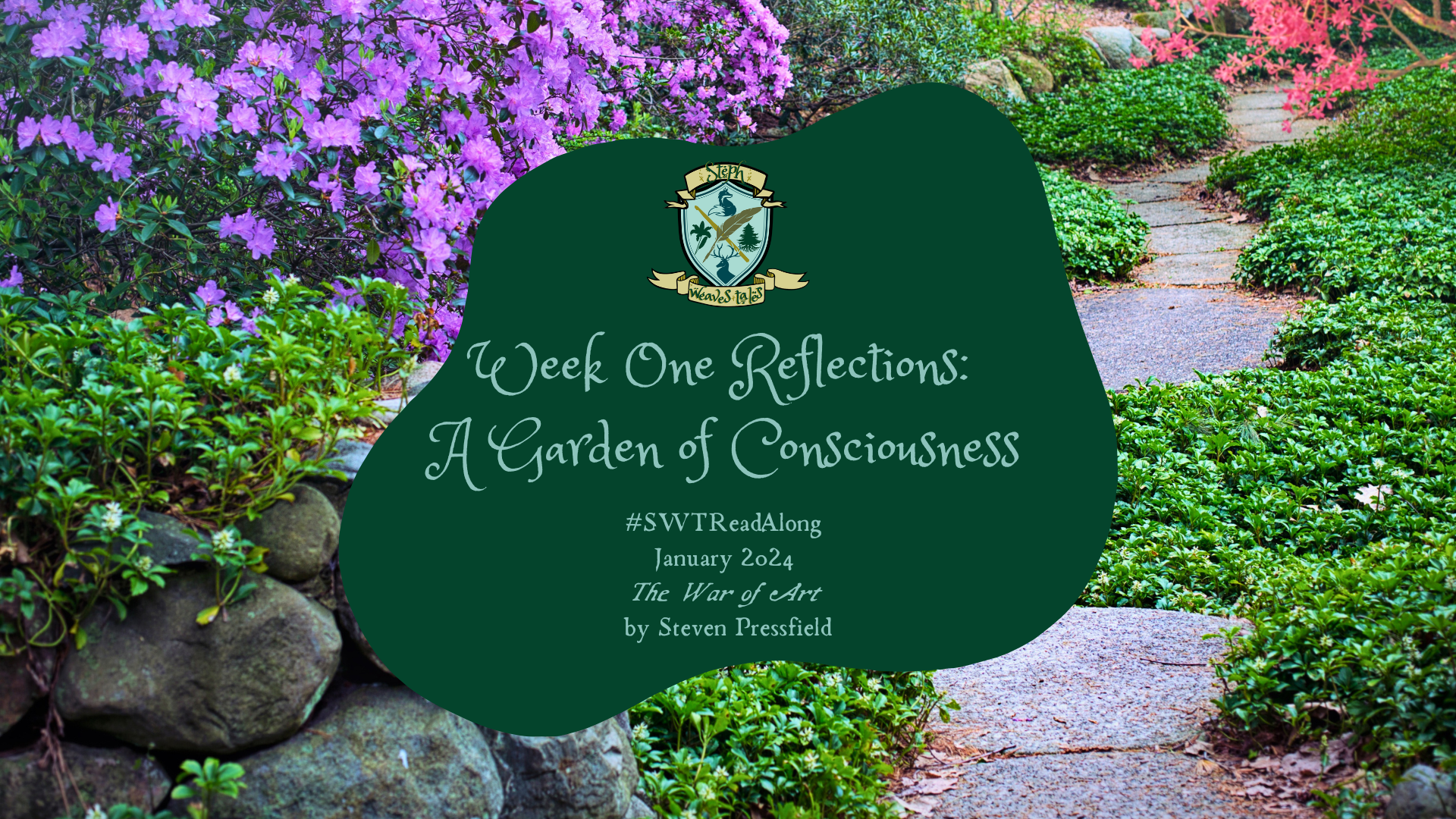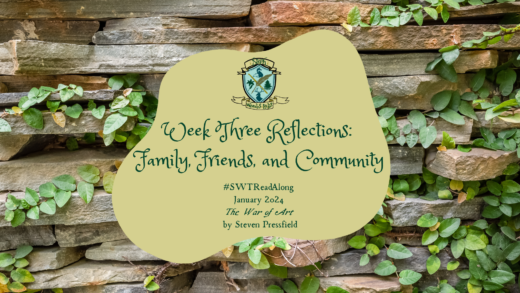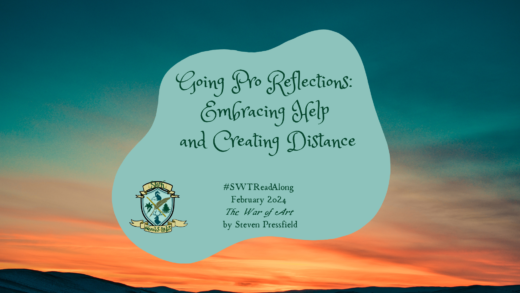We’re wrapping up Part 1 of The War of Art in these last couple of days of January, and with it, we have delved deep into what Resistance means to Steven Pressfield (and us, too).
Resistance can be named, among other things:
- Stagnation: A word I’ve used to describe my own feeling when my creativity cannot flow or flourish because something has clogged up the channels
- Psychic entropy: As described by Csikszentmihalyi, that mental state where lived experiences create conflict in our self-identity and leave us unbalanced
- Self-sabotage: Our own worst habits, fears, and regressive coping strategies getting in our way
- Fear: Maybe fear of change, maybe fear of the unknown, maybe fear that we can’t live up to this wonderful creative endeavor that lives inside our souls
In these last few pages of Part 1, Pressfield asserts, “Rationalization is Resistance’s spin doctor” (55).
I’ve been rewatching Star Trek lately. It’s one of my comfort franchises, something reassuring while I’m adjusting after my relocation from the West Coast to the East Coast. If you know anything about Vulcans, you would surely know that as a species, they value logic above all else. Other species view them as cold and emotionless, and yet one other thing is true about Vulcans: They experience emotions that are so powerful that Vulcan society is built around, well, rationalization. Vulcans use logic (and lots of other sci-fi space elf things that we have no time to get into here) to regulate those deep, powerful emotions, for better or worse. Two vulcans applying cold logic to the same situation can draw two completely different conclusions because, at the heart of it, their experiences, emotions, and goals color their logic.
In my reflections, I’ve written a lot about how important it is to recognize and accept circumstances as they are. There are some facts of existence that we just can’t fix, not even with enough gumption and can-do spirit. Accepting reality and factoring it into the plan is, at least for me, the greatest possible defense against self-destructive rationalization.
When rationalization is about finding excuses to let my worst tendencies run wild, it doesn’t actually help me or anyone around me.
If I rationalize putting a full stop to a creative endeavor so that I can be there for a sick friend, it makes rational sense. No one needs my creativity to survive, and the time I’m using to help that friend makes their life better right now. Next thing I know, I’m feeling bitter about that friend because they’re the thing between me and my creativity. That friend might get frustrated with me because they know how much my creativity matters to me, and then they’ve got to not only manage their own problems but also try to deal with mine.
To the other extreme, I could rationalize that my friend would want me to keep being creative, and I completely ignore their sickness and use all my time to create amazing stories. But then, every time I sit down to write, maybe I first have to deal with a knot of guilt in my gut that my friend needs me before I can get anywhere. Maybe my friend is the one who feels bitter because I wasn’t willing to give them any of my precious time to help them out.
You can’t deny the significance of that seed of creativity inside you, the importance of human relationships, or any of the circumstances you need to deal with daily.
You also can’t conjure up a twenty-fifth hour of the day or eighth day of the week where you can just do what you want.
(…Although, if you can manipulate time and space, please teach me your secrets.)
But, even with all that mess vying for our attention from minute to minute, Steven Pressfield has this right: “Defeating Resistance is like giving birth. It seems absolutely impossible until you remember that women have been pulling it off successfully, with support and without, for fifty million years” (57).
Somehow, people create amazing nonprofit organizations, even in the face of the darkest tragedies humans could exist. New movies debut in theaters every week. Shelves and shelves of newly-released books grace bookshops and libraries. Beautiful human art fills the walls of galleries and museums across Earth.
If you ever need proof that Resistance can be defeated, spend time with your favorite piece of art, whatever its form may be. That artist, singer, writer, director, performer, creator figured out how to make it happen. It wasn’t easy for them, either. (How do I know? Because if it touches your heart enough to be anyone’s favorite, it had to come from a place of striving for something more).
You aren’t alone in this, no matter how impossible it may seem.
February brings us into Book 2, where we will explore the attitude of the pro as a way to combat resistance. I’ll most likely continue bringing Mihaly Csikszentmihalyi’s work on Flow into the conversation, most likely pulling my quotes from his 1997 release, Finding Flow.
Now, go listen to a favorite song—and maybe tell me what it is. (We could make a big inspo playlist!)

Stephanie Gildart weaves tales in writing and crochet. As a child growing up near Seattle, she checked out so many books that she memorized her library card number. She received her MA/MFA from the Simmons University Center for the Study of Children’s Literature in Boston. When she isn’t writing or teaching English, she loves to crochet amigurumi dolls of fantasy creatures, play tabletop roleplaying games and board games, and sing.


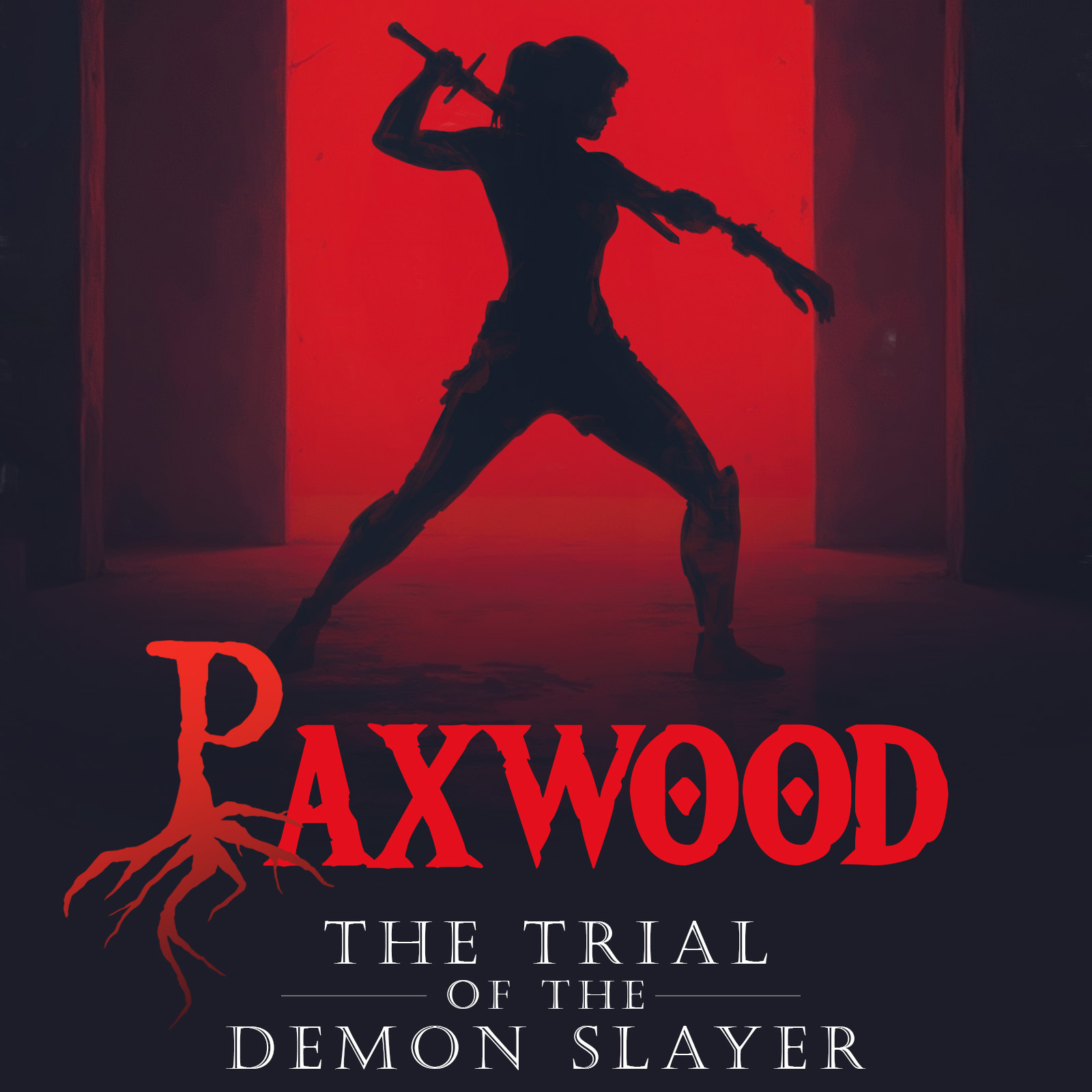
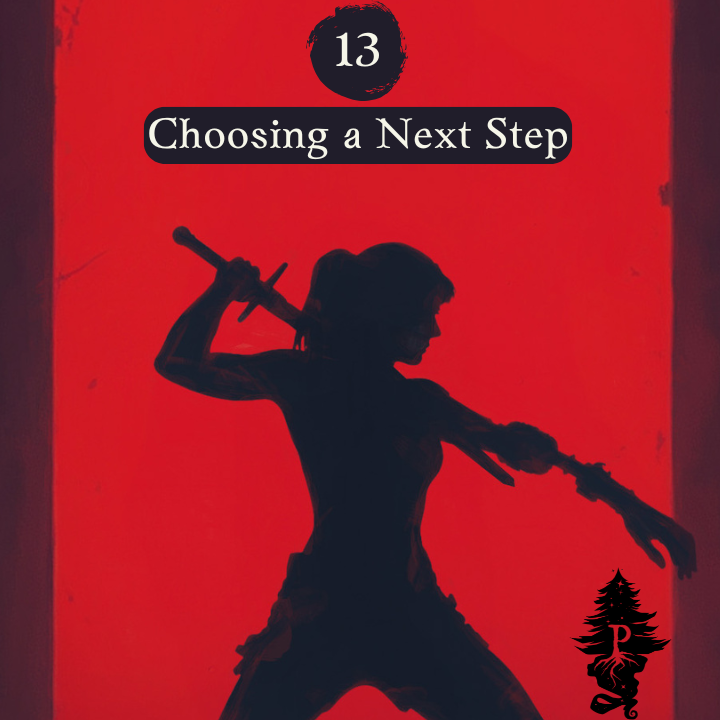
 Read Paxwood
Read Paxwood